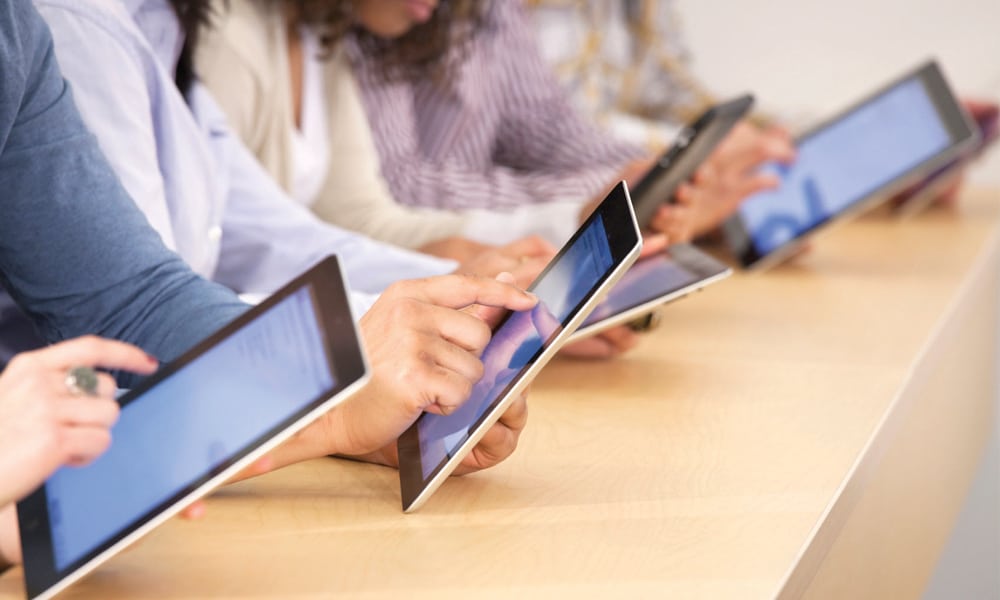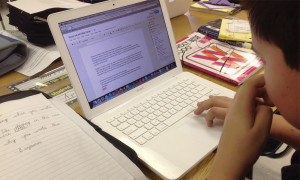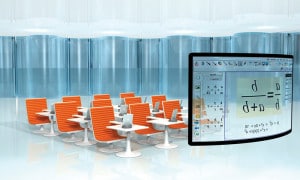
With a great deal of transformation happening in classrooms, schools and systems, the way students are imparted education is undergoing a sea change. This is leading to the need of new pedagogies in teaching and learning in educational institutions across the globe. Aamir H Kaki of Elets News Network (ENN) delves into the transformation happening in the education space, what’s triggering it and why there is a need for redesigning learning-teaching pedagogies.
The digital revolution is sweeping across our work spaces, organisations and almost every sphere of our daily life. This revolution is already in the developed world and is fast making its presence felt in the developing world, too. In fact, it is transforming the way children and young people play, access information, communicate with each other and learn. It has also transformed most of the educational institutions in terms of teaching and learning in classrooms. This transformation is leading to the need of new pedagogies in teaching and learning in institutions across the globe.
Now, people are spending more time, money and resources on education than ever before. An individual’s educational attainment is vital to her/his success in life, yet a large number of mainstream educational institutions across the world exist there, which are obsolete now—as they were designed to fulfill the requirements of the erstwhile mass-production industrial era—and where the focus is on superficial knowledge of content that is measured through traditional examinations.
For at least a century now, teaching strategies advocated by John Dewey, Jean Piaget, Maria Montessori and Lev Vygotsky are starting to emerge and be embraced. Earlier, the conditions for their ideas to take shape and flourish did not exist. But today, there are signs of a changing order; a strong undercurrent of transformation is there, leading to powerful teaching strategies being implemented both in regular schools and in fairly traditional public education systems. They are emerging almost as a natural consequence of student-teacher alienation, on the one hand, and growing digital access, on the other.
What’s Triggering the Change?
The digital era is changing certain fundamental aspects of education. It is changing the traditional role of teachers and textbooks as the primary sources of content knowledge. Digital access has made it possible for students to apply their solutions to real-world problems with authentic audiences well beyond the boundaries of their schools. This is the real potential of technology to transform learning – not to facilitate the delivery and consumption of knowledge, but to enable students to use their knowledge in the world.
For over a century, a set of pedagogies reflecting the priorities of the Industrial Age has been embedded in the process of imparting mass education. The hallmarks of these pedagogies are found in teacher-controlled learning where deconstructed and reconstructed information is presented to cohorts of students in standardised classroom settings.
Changes in society, student expectations and technological advancements are motivating innovative educational institutions and faculty and instructors to re-think pedagogy and teaching methods. There are several factors at work here:
Knowledge-based society: Continuing development of new knowledge is in focus, making it difficult to squeeze all that learners want to know within the limited time period of a particular course or educational programme. This means helping learners to manage knowledge — how to find, analyse, evaluate and apply knowledge, as it is constantly shifting and growing.
Emphasis on skills: There is an increased significance of skills or applying knowledge to suit the demands of 21st-century society. Skills such as critical thinking, independent learning, knowing how to use relevant information technology, software and data within a field of discipline and entrepreneurialism have gained importance today. The development of such skills requires active learning in rich and complex environments, with plenty of opportunities to develop, apply and practise such skills.
Student expectations: Today’s students have grown up in a world where technology is a natural part of their environment. Their expectation is that technology will be used where appropriate to help them learn, develop essential information and technology literacy skills, and master the technology fluency necessary in their specific subject domain.
Technological development: Recent developments in technologies, such as smartphones and tablets, have given the learner much more control over access to and creation and sharing of knowledge. This empowers learners, and innovative educators are finding ways to leverage this learner control to increase motivation and relevance for them.
Moving Beyond Connecting
The old teaching-learning pedagogies are no longer relevant in the 21st century, as they ignore the capacity for learning to take place in both physical and virtual learning environments. To embrace new opportunities, there is a need of new pedagogies which can reflect a bold and creative commitment to relevance and quality learning and teaching.
However, a supporting pedagogical framework must go beyond connecting educational institutions and providing tools for students and teachers. It has to be built on the relational nature of learning and be relevant to all those interested in learning in today’s world.
Effective teaching will always be relational. However, in a virtual learning space, the role of a teacher will be to guide students in making the connections to resources, ideas and people, instead of depending on teachers to provide them. Therefore, there is a need to teach higher level thinking skills and develop key competencies using technology to prepare students for the future. Alongside this, there is a need to rethink ideas to make learning systems organised, resourced and supported.
A future-focused and personalised approach towards learning allows students to take control of their own learning, which means students can understand how they learn, own and drive their learning, and become co-designers of the curriculum and their learning environment.
The new and emerging pedagogies require students not only to create new knowledge, but also to connect it to the world, using the power of digital tools to do things that matter beyond school. A great deal of transformation is happening already in classrooms, schools and systems. Some of them are quite exciting, but we really don’t know much about how they work as a whole.
Now, what exactly do these pedagogies look like in terms of teachers (teaching) and students’ (learning) roles? How do we know that these new roles and practices work to achieve new learning outcomes? Why and how do they expand across whole education systems?
These questions, among many others, often permeate campus conversations, conferences, and discussions. Through collaboration and the intentional infusing of technology into informal learning spaces, we can invent the pedagogies for future teaching and learning.
To focus on exploring answers to above questions and beyond, mining for insights that can lead to more effective implementation and rapid expansion of the emerging pedagogies, we take the views of educational experts, principals and heads of educational experts and other stakeholders. The impelling exhortations and case studies shared by these experts bring greater precision and clarity to our quest to examine the “Emerging Teaching-Learning Pedagogies”.























